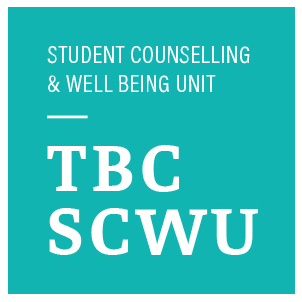Sexual Assault and Harassament: How to Give & Receive Help

Assault and harassment have severe effects on a person's physical and mental health. They can increase stress, fear, anxiety, and depression - and reduce confidence, creativity, and ability in the victim. But the important thing to remember if you are a victim, is that you are not alone.
Here at the College we have a wellbeing team who are always on hand to help. So here is a guide to help you understand how to reach out if you are a victim of sexual assualt or harrassment - and how to help a friend if you notice that they are suffering.
How can I tell someone about my sexual assault?
What: What aspect of the story and how much of it to share if completely up to you. So, if the person that you have chosen to share with is asking you for further details that you are not willing to give, do not hesitate to request them to stop asking and inform them that you will share more if and when you feel comfortable to do so.
Who: When are you deciding who you should share your story with, ask yourself - do you think they will react in a supportive way? Have you heard them make unsupportive/judgemental remarks about sexual assault when it has come up before, or even in the news? Do you think the person knows the perpetrator in any way, as it may affect their reaction to your disclosure?
When: Choose a time when you know that the listener is available and in a position to give you their full attention. Do not approach them when they are about to sleep, leave the house, or are intoxicated.
Where: If you feel safe, then choose a private place to tell them about what happened. However, if you are unsure of their reaction and fear that they may react with violence, a public location or online forum would be safer. Asking someone you trust to come for standby to wait could also be a wise option.
How: Remember that it is your story that you are sharing in the way that you are most comfortable. Everyone has their preferred method of communication - whether it be video, audio, in-person, or text. Just remember that no matter how you choose to tell your story, it could be good to share some ground rules like: “I’d like to tell you about something that’s hard for me to talk about, and it would mean a lot if you would just listen and not ask any further details today”.
How can I support someone who has been sexually assaulted?
Do:
- Resist the urge to lecture them and listen without judgment
- Show support and believe in what they have shared
- Be there for them
- Know that what the survivor decides to do is not your decision
- Seek community resources for support for your survivor (hotline support: 1145)
Don't:
- Express shock, anger, or disbelief
- Start a debate about sexual violence
- Ask questions like "why did you do that", "what were you wearing?"
- Pry for more information than they are ready to give
If you are a survivor of sexual assault or someone who feels triggered with the social media news on sexual violence, please seek help from SCWU.










